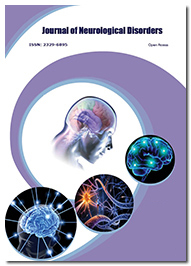Advanced Skin Diagnoses for Effective Dermatological Care

Advanced Skin Diagnoses for Effective Dermatological Care
The health of our skin is a reflection of our overall well-being. Advanced skin diagnoses play a pivotal role in ensuring effective dermatological care. In this article, we will explore the significance of precise skin diagnostics and their impact on maintaining healthy and radiant skin.
The Complex Landscape of Skin Conditions: A Diverse Spectrum
Our skin is a complex organ, susceptible to a wide range of conditions. From common issues like acne and eczema to more severe conditions such as psoriasis or skin cancers, the dermatological landscape is diverse. Accurate skin diagnoses are crucial for identifying the specific nature of these conditions and tailoring appropriate treatment plans.
The Importance of Early Detection: Nipping Problems in the Bud
Early detection is a cornerstone of effective dermatological care. Skin diagnoses allow dermatologists to identify issues at their earliest stages, often before visible symptoms fully manifest. This early intervention not only prevents the progression of conditions but also enhances the effectiveness of treatment, contributing to better outcomes.
Precision Diagnostics Techniques: Going Beyond the Surface
Modern dermatology employs advanced diagnostic techniques that go beyond surface-level observations. Dermatologists use tools like dermoscopy, skin biopsies, and advanced imaging to obtain a deeper understanding of skin conditions. These techniques provide invaluable insights, enabling precise diagnoses and personalized treatment plans.
Tailored Treatment Plans: Addressing Unique Skin Needs
Precise skin diagnoses pave the way for tailored treatment plans. No two skin conditions are exactly alike, and dermatologists leverage their expertise to craft interventions that address the unique needs of each patient. This personalized approach increases the likelihood of successful outcomes and patient satisfaction.
Skin Diagnoses and Chronic Conditions: Managing Long-Term Health
For individuals with chronic skin conditions, ongoing skin diagnoses are essential for managing long-term health. Conditions like psoriasis or eczema may require continuous monitoring and adjustments to treatment plans based on the skin’s evolving needs. Regular skin diagnoses ensure that the management strategy remains effective over time.
Preventive Dermatology: A Proactive Approach to Skin Health
Beyond addressing existing issues, skin diagnoses also play a crucial role in preventive dermatology. Dermatologists can assess risk factors, identify precancerous lesions, and provide guidance on sun protection and skincare routines. This proactive approach is instrumental in preventing future skin problems and maintaining overall skin health.
Holistic Skin Health: Considering Internal and External Factors
Effective dermatological care extends beyond external treatments. Dermatologists consider both internal and external factors that may impact skin health. This holistic approach involves assessing lifestyle, diet, and overall health to identify contributing factors and develop comprehensive solutions for optimal skin well-being.
Technological Advancements: Transforming Dermatological Practices
Technological advancements continue to transform dermatological practices. From artificial intelligence aiding in skin cancer detection to telemedicine facilitating remote consultations, these innovations enhance the efficiency and accessibility of skin diagnoses. Embracing technology ensures that patients receive the best possible care, regardless of location.
Accessible Information and Resources: Empowering Patients
In the age of information, accessibility is key. Patients can now access a wealth of information about













